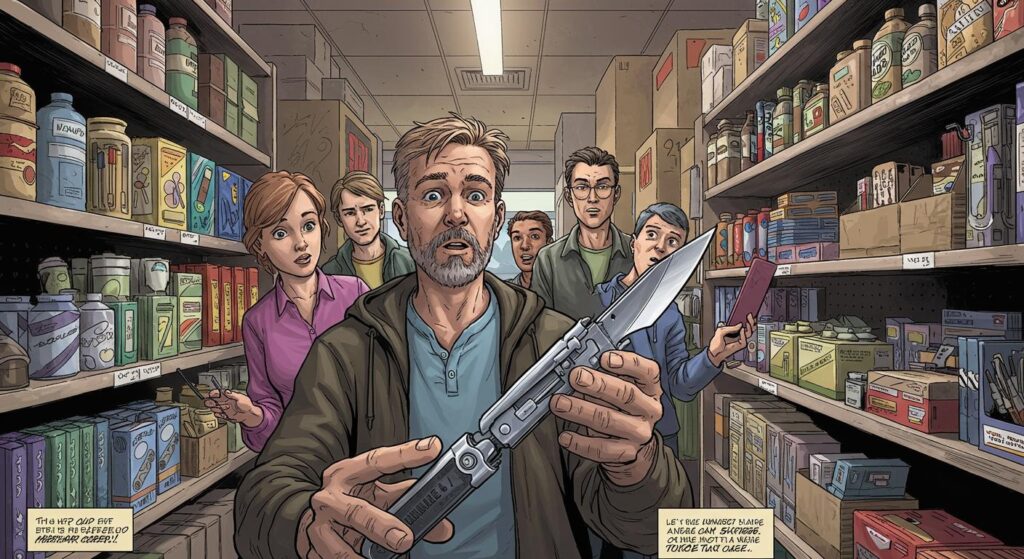There are stories where, after a couple passes, I have to check that I’m not cataloging an urban legend or the lost pitch for a Kafka adaptation. The recent news out of Toulouse, however, remains stubbornly real. As The Catholic Herald meticulously records, Archbishop Guy André Marie de Kerimel has appointed Dominique Spina—whose criminal history is an open book—as diocesan chancellor and episcopal delegate for marriages. The appointment, while not quite the “hidden in plain sight” genre of organizational weirdness, is a case study in bold, unblinking institutional bafflement.
A Resume for the Archives
Let’s take the highlights. Spina’s clerical life was interrupted by conviction in 2006 for repeatedly raping a teenage boy (his spiritual directee) during the early 1990s, as described by The Catholic Herald. After serving half of a four-year sentence, he was released on parole, assigned to the Toulouse archdiocese—ostensibly with limitations—and provided psychological supervision. Even then, warnings abounded: psychiatric experts cited by The Catholic Herald and echoed in The Pillar’s analysis flagged “paranoid, narcissistic and perverse dispositions” as well as “a lack of guilt.”
For a time, Spina’s post-prison work was nominally administrative, but, in a detail also chronicled by The Catholic Herald, he was eventually placed in charge of a parish with youth ministry responsibilities, at least until a 2016 controversy forced another reassignment.
Grouping these facts paints a picture: repeated abuse substantiated by multiple sources, a criminal conviction, professional risk assessments that fell squarely on “not a safe bet,” and periodic returns to public-facing ministry rather than permanent low-visibility roles.
Mercy, Promotion, and Word Games
So why put Spina in a high-profile diocesan role in 2025? The archbishop’s reasoning, as examined by both The Pillar and The Catholic Herald, is layered with appeals to mercy. Archbishop de Kerimel notes Spina’s record is, in recent decades, “nothing to reproach… for acts likely to be the subject of legal, canonical or civil proceedings.” He further insists that the justice system has served its purpose and that to continually exclude Spina would deny the possibility of redemption—a notion The Pillar quotes at length, with the archbishop arguing that “mercy is not opposed to justice, but it goes further.”
At the same time, de Kerimel stresses that this move shouldn’t be called a “promotion”—it’s “a continuation and extension of a service he was already performing.” The chancellor, he notes, is “a man of the shadows,” without a leadership or highly visible pastoral role, but rather someone running the machinery of diocesan paperwork.
But this is hardly administrative purgatory. The Pillar describes Spina’s prior responsibilities as vice-chancellor and archivist, mostly overseeing records and notifications. With the chancellor’s former occupant resigning, Spina now takes on new duties, particularly those involving marriages, and gains additional authority. Even canon law, as The Pillar highlights, expects chancellors to be “of unimpaired reputation and above all suspicion”—not a line anyone familiar with archives, whether church or public, would have thought terribly ambiguous.
It’s worth pausing here: is a high-profile role in a diocese really “not a promotion” simply because it’s not public-facing? And if trustworthiness is foundational—if, say, you’d never appoint a convicted embezzler to oversee parish finances—is this mercy or a kind of selectively-blind benevolence? Keen-eyed observers, such as the victims’ association Fraternité Victimes, told The Catholic Herald that labeling this appointment an act of mercy is “simply scandalous.” Meanwhile, Patheos’s Public Catholic goes further, drawing the parallel that financial crimes would never be met with equivalent “compassionate” reassignments.
A Reflection of Deeper Puzzles
So, what drives this kind of baffling HR decision? Part of it might be inertia within institutional structures so massive that they sometimes forget they aren’t shuffling around decimal points in an old ledger. The broader backdrop, carefully detailed by The Pillar, is a French Catholic Church still not so much grappling with as being flung about by the legacy of clerical abuse—an estimated 330,000 children abused between 1950 and 2020, according to the CIASE inquiry. Repeated scandals involving prominent churchmen, a cascade of promises for reform, and then an appointment that raises every possible warning flag for those watching church governance, all suggest a pattern of prioritizing clerical rehabilitation over public trust.
And while Archbishop de Kerimel is hardly the first or only prelate to appeal to “mercy” in these cases, the tangible effect is the same: a message—sometimes whispered, sometimes quite plain—that crimes involving authority and betrayal of trust don’t disqualify one from eventually regaining that authority, so long as time passes and public outrage wanes.
What kind of precedent, exactly, is this setting within a context where, as The Pillar notes, the church is simultaneously promising a “vast program of renewal” and asking the public to believe that ancient structures can really change? If the basis for trust is an “unimpaired reputation,” how much does it matter whether the role is, to quote de Kerimel, “of the shadows”?
File Under: Utterly Inexplicable
It’s not lost on anyone keeping odd records—literal or figurative—that belief in individual repentance can and should coexist with safety and prudence, especially when an organization’s very purpose depends on trust. Appointing Spina chancellor is not simply bizarre; it’s a studied confusion of spiritual ideals with the practical realities of risk management, institutional credibility, and duty to those already harmed.
Of course, perhaps future archivists will find traces of administrative decisions even more improbable. The era’s habits suggest as much—a kind of organizational confidence that, even when history stares you square in the face, you can look left, stamp “Mercy” on your paperwork, and file it under “Solved.”
If that sounds familiar, it might be because you’ve seen this movie before. It just never gets any less baffling, does it?







